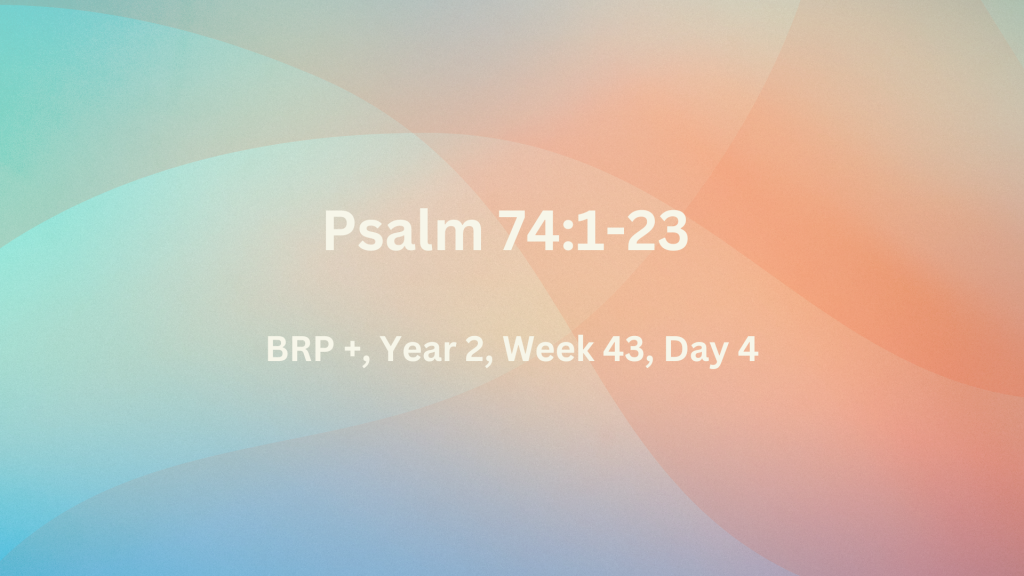Psalm 74:1-23
Q.1. What indication do we have of the setting of this Psalm? Why was the writer bewildered? How did he overcome his distress? – (Ps.74:1-17)
The Psalm was written by one of the sons of Asaph (1 Chron 25:1-2). It is a lament over the devastation of Judah and the temple in Jerusalem, caused by the Babylonians – They have burned Your sanctuary to the ground; They have defiled the dwelling place of Your name (Ps.74:7 c.f. Ps.74:2-3). He appealed to God that Israel were the sheep of His pasture, whom He had purchased of old, and who were redeemed to be the tribe of His inheritance (Ps.74:1-2). He was bewildered because the enemy had been able to desecrate the sanctuary and raise their own ungodly signs (Ps.74:4). He still approached the Lord, based on His Covenant relationship with Israel, but was uncertain of how long this agreement would last (Ps.74:9-11 c.f. Jer.25:11-12). He could only find hope in the remembrance that – God is my king from of old, Who works deeds of deliverance in the midst of the earth (Ps.74:12). He recalled God’s great works, and the fact that God is in control of everything – 16 Yours is the day, Yours also is the night; You have prepared the light and the sun. 17 You have established all the boundaries of the earth; You have made summer and winter (Ps.74:16-17).
Q.2. How did he view his people? To what fact did he appeal as a basis for God to act? In what way was Israel God’s own cause? – (Ps.74:18-23)
Asaph reminded God that the enemy had spurned His name. He described Israel with the endearing name of the Lord’s ‘turtle dove’ (Ps.74:18-19). He appealed to God’s Covenant relationship with them and begged that they would be enabled to praise His name again (Ps.74:21). He argued that Israel was God’s cause because they were His people. He understood that God alone was able to recompense the enemy for what they had done to Israel (Ps.74:22-23).

